Medicine For Stomach Worms
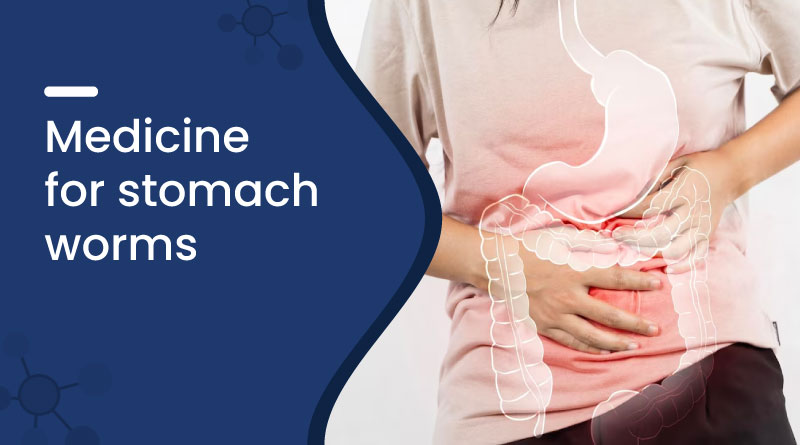

Medicines for stomach worms, or Anthelmintics, are commonly used to treat stomach worms. These medications work by either killing the worms or making them weak by interfering with their nutritional absorption, and supporting their elimination from the body.
What is medication for stomach worms used for?
Medication for stomach worms is used to treat infections caused by various types of intestinal worms or parasites.
List of Generic medicine for stomach worms in India:
| Medicine Name | Composition |
|---|---|
| Albendazole | Used to treat stomach worms such as tapeworm, hookworm, and pinworm |
| Mebendazole | Decreases sugar absorption in worms and kills them |
| Praziquantel | Used in deworming, supports removal by paralysing the parasite |
| Ivermectin | Used as a dewormer, eliminates the parasite |
| Levamisole | Treats roundworms and removes parasites by paralysing them |
| Nitazoxanide | Inhibits parasite growth and helps in deworming |
Medicines for Stomach Worms
Below is a quick, patient-friendly guide to common antiparasitic medicines used for intestinal and tissue worm infections. This is general information to help you understand options—not a prescription. Always consult a qualified clinician for diagnosis, the right drug, dose, and duration, especially for children, pregnancy, or chronic illness.
Albendazole
- What it treats: Broad-spectrum—roundworms, hookworms, whipworms, some tapeworms; also tissue infections like neurocysticercosis and hydatid disease (usually with specialist guidance).
- How it works: Blocks glucose uptake in worms, depleting energy and killing them.
- Common side effects: Mild stomach upset, nausea, headache; rarely liver enzyme elevation with prolonged use.
- Use notes: Often first-line for many intestinal helminths. For brain or cyst infections, it’s used under strict medical supervision, often with steroids and antiepileptics.
Mebendazole
- What it treats: Intestinal worms—roundworms, whipworms, pinworms, and hookworms; frequently preferred for pinworm (threadworm).
- How it works: Similar to albendazole—starves worms by inhibiting glucose utilization.
- Common side effects: Abdominal pain, diarrhea, gas; generally well tolerated.
- Use notes: Useful for household “pinworm outbreaks” with strict hygiene measures to prevent reinfection.
Praziquantel
- What it treats: Tapeworms and flukes—schistosomiasis (blood flukes), liver flukes; part of regimens for hydatid disease with albendazole in select cases.
- How it works: Paralyzes flatworms, allowing the body to clear them.
- Common side effects: Dizziness, drowsiness, abdominal discomfort; transient headache.
- Use notes: Avoid driving/heavy machinery on treatment day due to possible drowsiness.
Ivermectin
- What it treats: Strongyloidiasis (threadworm), onchocerciasis (river blindness), scabies, and some lice infestations.
- How it works: Disrupts parasite nerve/muscle function, leading to paralysis and death.
- Common side effects: Mild dizziness, rash, itching; in heavy parasite loads, inflammatory reactions can occur as parasites die.
- Use notes: Standard for certain roundworm infections and ectoparasites; dosing is weight-based and needs medical guidance.
Levamisole
- What it treats: Roundworm and hookworm infections; also has immune-modulating properties used in select non-infectious conditions.
- How it works: Paralyzes worms so they are expelled.
- Common side effects: Nausea, dizziness, flu-like symptoms; rare but serious blood count suppression has been reported—requires medical oversight.
- Use notes: Less commonly used today for deworming compared with albendazole/mebendazole.
Nitazoxanide
- What it treats: Protozoal diarrheal illnesses—giardiasis, cryptosporidiosis—and some tapeworm infections.
- How it works: Interferes with parasite energy metabolism.
- Common side effects: Abdominal pain, headache, nausea; urine or eyes may appear slightly yellowish (benign, due to the drug).
- Use notes: Helpful when stool tests show Giardia or Cryptosporidium, especially in persistent watery diarrhea.
List of Medicine for stomach worms in India:
| Medicine Name | Composition | Benefits |
|---|---|---|
| Banzole 400 Tablet | Albendazole (400 mg) | Treats parasitic worm infections such as dog tapeworm and pork tapeworm |
| Banzole Plus Tablet | Albendazole (400 mg) + Ivermectin (6 mg) | Kills worms and supports elimination. Treats dog tapeworm and pork tapeworm. |
| Filocar 100 Tablets | Diethylcarbamazine 100 mg | Treats worm infections, reduces pain, itching, and swelling |
| Banzole Oral Suspension | Albendazole I.P. (200 mg) | Treatment of parasitic infections |
Deworming Tablets for Adults
Banzole 400 Tablet
Banzole 400 Tablet contains Albendazole (400mg) and is a prescribed deworming medicine for adults. It works by preventing worms from absorbing essential nutrients, which stops their growth and reproduction. This medicine is highly effective against roundworm, whipworm, hookworm, and threadworm infections, ensuring proper intestinal health and parasite clearance.
- Salt Composition: Albendazole (400mg)
- What it does: Inhibits worm growth and reproduction, leading to elimination of intestinal parasites.
- Best for: Roundworm, hookworm, whipworm, and threadworm infections.
Banzole Plus Tablet
Banzole Plus Tablet combines Albendazole (400mg) with Ivermectin (6mg), making it a strong worm medicine for adults with mixed infections. While Albendazole kills intestinal worms, Ivermectin paralyzes and eliminates parasites from the body. It is commonly prescribed for strongyloidiasis, filariasis, and other parasitic diseases where dual-action treatment is needed.
- Salt Composition: Albendazole (400mg) + Ivermectin (6mg)
- What it does: Albendazole kills intestinal worms, while Ivermectin paralyzes and eliminates parasites.
- Best for: Strongyloidiasis, filariasis, and other mixed parasitic infections.
Filocar 100 Tablet
Filocar 100 Tablet, made with Diethylcarbamazine (100mg), is a trusted stomach worms medicine designed to treat filarial infections. It targets and kills microfilariae (larvae) in the blood and tissues, helping reduce swelling, fever, and pain. Doctors prescribe it mainly for patients suffering from lymphatic filariasis and related parasitic conditions.
- Salt Composition: Diethylcarbamazine (100mg)
- What it does: Kills microfilariae (larvae) and reduces symptoms of filarial infections.
- Best for: Lymphatic filariasis and related parasitic diseases.
Deworming Medicine for Kids
Banzole Oral Suspension
Banzole Oral Suspension contains Albendazole I.P. (200mg) and is a widely recommended deworming tablet for children. It helps destroy and clear roundworms, pinworms, and hookworms effectively. Easy to administer in liquid form, this suspension ensures safe and convenient treatment of worm infestations in kids, restoring digestive balance and overall health.
- Salt Composition: Albendazole I.P. (200mg)
- What it does: Destroys intestinal worms, prevents their reproduction, and promotes parasite clearance.
- Best for: Children (and adults) with intestinal worm infestations such as roundworms, hookworms, and pinworms.
Benefits of stomach worm medication:
- Eliminates intestinal parasites: This includes roundworms, hookworms, tapeworms, and pinworms.
- Alleviates gastrointestinal issues: It includes abdominal discomfort, bloating, diarrhoea, nausea, and gas.
- Increases nutrition absorption: Decreases parasitic activity, slows their growth, and increases absorption of nutrients in the stomach.
- Appetite stimulant and weight gainer: Increases appetite and weight, particularly in children with malnutrition.
- Energy booster: Reduces fatigue and weakness associated with parasitic infections and improves energy levels.
- Reduces anaemia risk: By killing blood-feeding parasites like hookworms.
- Prevents serious complications: Kills the parasite and prevents intestinal blockage.
- Enhances the immunity: Reduces parasite load, prevents infection, and provides natural defence.
When should I take stomach worm medication?
You can take stomach worm medication if you feel symptoms like bloating, diarrhoea, unexplained weight loss, or itching around the anus. If you suspect stomach worms, then you should take worm medication. For children aged 1 to 12 years, use the medicine every 6 months; for adults, take it every 6–12 months. Take the medicine after food to avoid gastric side effects.
How to take stomach worm medication?
Take the medicine with or without food or as prescribed by the doctor.
How does stomach worm medication work?
Stomach worm medication works by either paralysing, starving, or killing the worms, preventing them from causing further damage.
What to avoid?
- Avoid eating raw or undercooked meat and fish.
- Avoid walking barefoot: Do not walk barefoot on contaminated soil, as worms can enter your skin.
- Avoid open toilets: Use a sanitised toilet to prevent worm infection.
- Avoid self-medication: It may increase the risk of medication misuse. Always follow the prescribed dosage and duration, and take the medicine even if you feel better.
When to see a doctor?
- If you suspect a stomach worm infection
- If you find worms in your stool
- Severe abdominal pain, intestinal obstruction, or lack of appetite
Summary
Medicines for stomach worms, commonly known as dewormers or anthelmintics, are used to treat infections caused by these parasites. Deworming is crucial in children, as worms can inhibit their growth and development. Individuals living in regions with inadequate sanitation and hygiene are particularly at risk. Consistent deworming boosts nutrient absorption, prevents anaemia, reduces fatigue, and improves overall health and immunity. Timely diagnosis and treatment are essential for effective deworming. Raising awareness, regular medicine use, implementing preventive care, and maintaining proper hygiene are vital measures for managing parasitic infections.
Frequently Asked Questions (FAQs):
Q: What is the best time to take deworming medicine?
A: Take the medicine with or without food or as advised by the doctor.
Q: Do foods affect deworming?
A: Foods do not affect deworming. You can eat anytime after taking the deworming medicine.
Q: Is it possible to use worm medication without a prescription?
A: Yes, it is possible to use worm medication without a prescription. OTC medications are generally used for deworming. If the symptoms remain untreated, then seek medical advice.
Q: Are there any potential side effects?
A: Generally, no side effects are seen; however, in some cases, mild gastric distress can occur.
Q: Is it safe to deworm children?
A: Yes, most deworming medications are considered safe for children aged 1–2 years and older, but always consult a paediatrician before administering medication to children.
Q: How regularly should I deworm?
A: In high-risk cases, deworm every 6–12 months or as advised by the doctor.
Q. Which is the best worm tablet for adults?
A.The best worm tablet for adults depends on the type of worm infection. Albendazole and Ivermectin combinations are commonly prescribed for mixed infestations, while Diethylcarbamazine is used for filarial infections. A doctor’s diagnosis helps decide the most suitable medicine.
Albendazole (400 mg) + Ivermectin (6 mg)
1 Tablets In 1 Strip
Recent Blogs
Disclaimer : Zeelab Pharmacy provides health information for knowledge only. Do not self-medicate. Always consult a qualified doctor before starting, stopping, or changing any medicine or treatment.

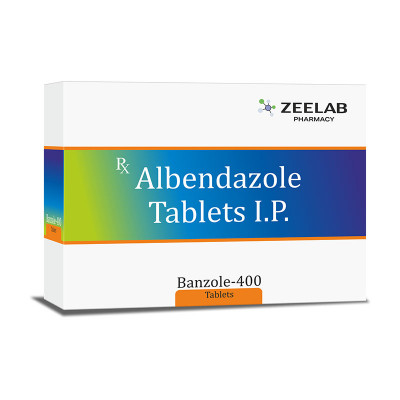
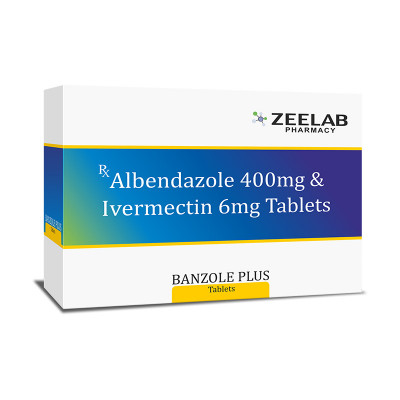
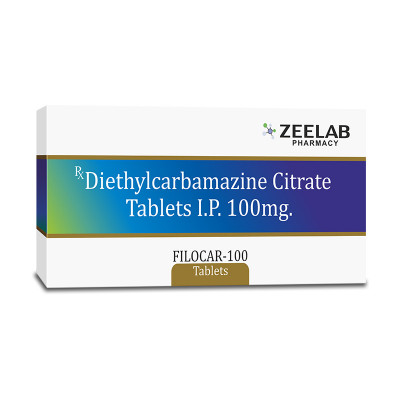
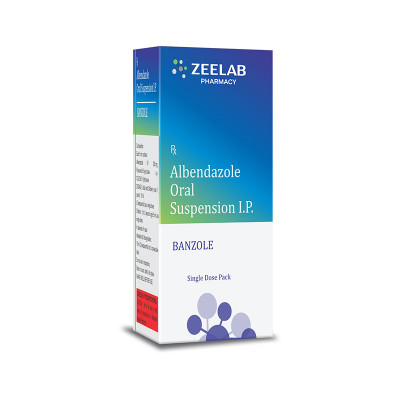
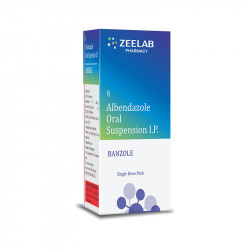
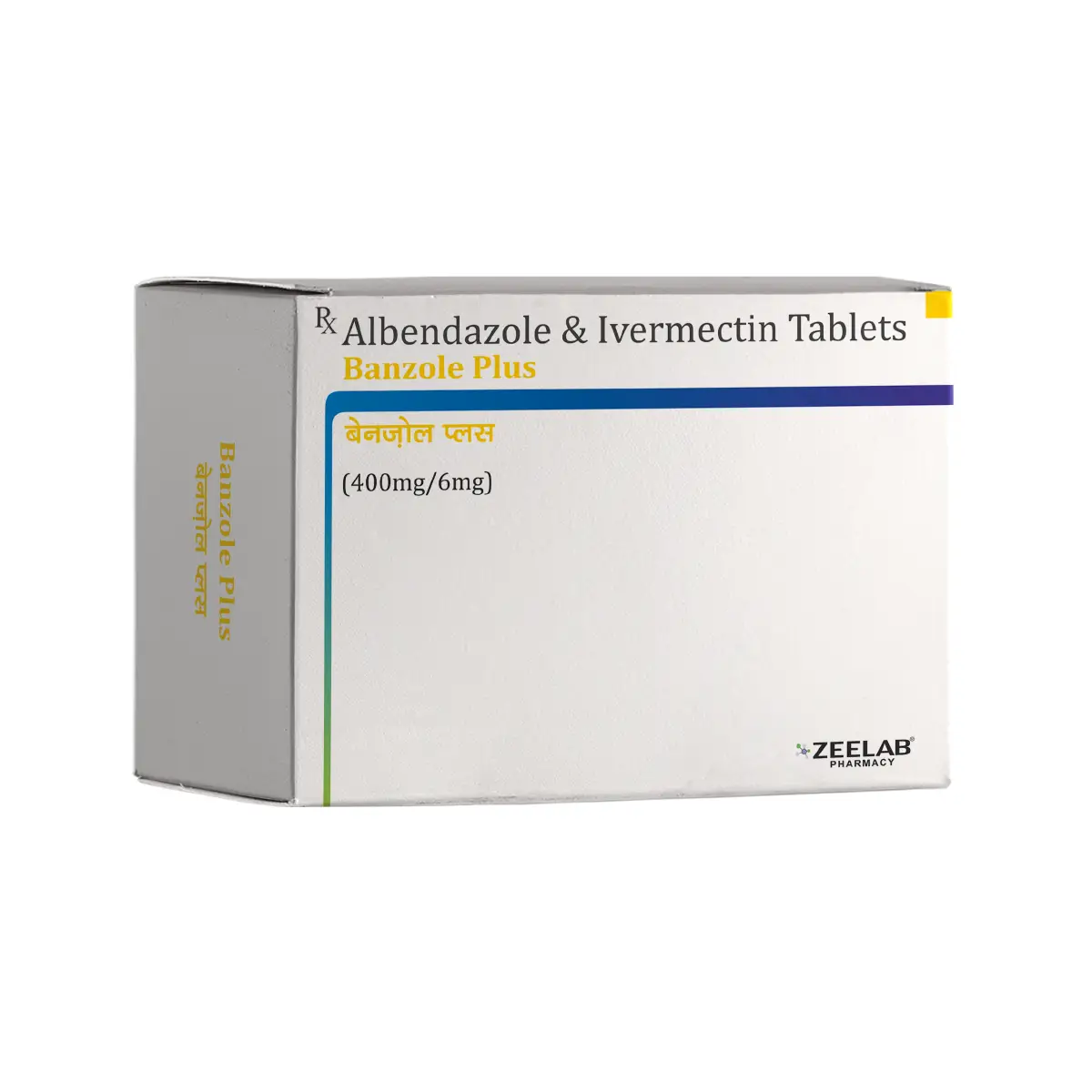
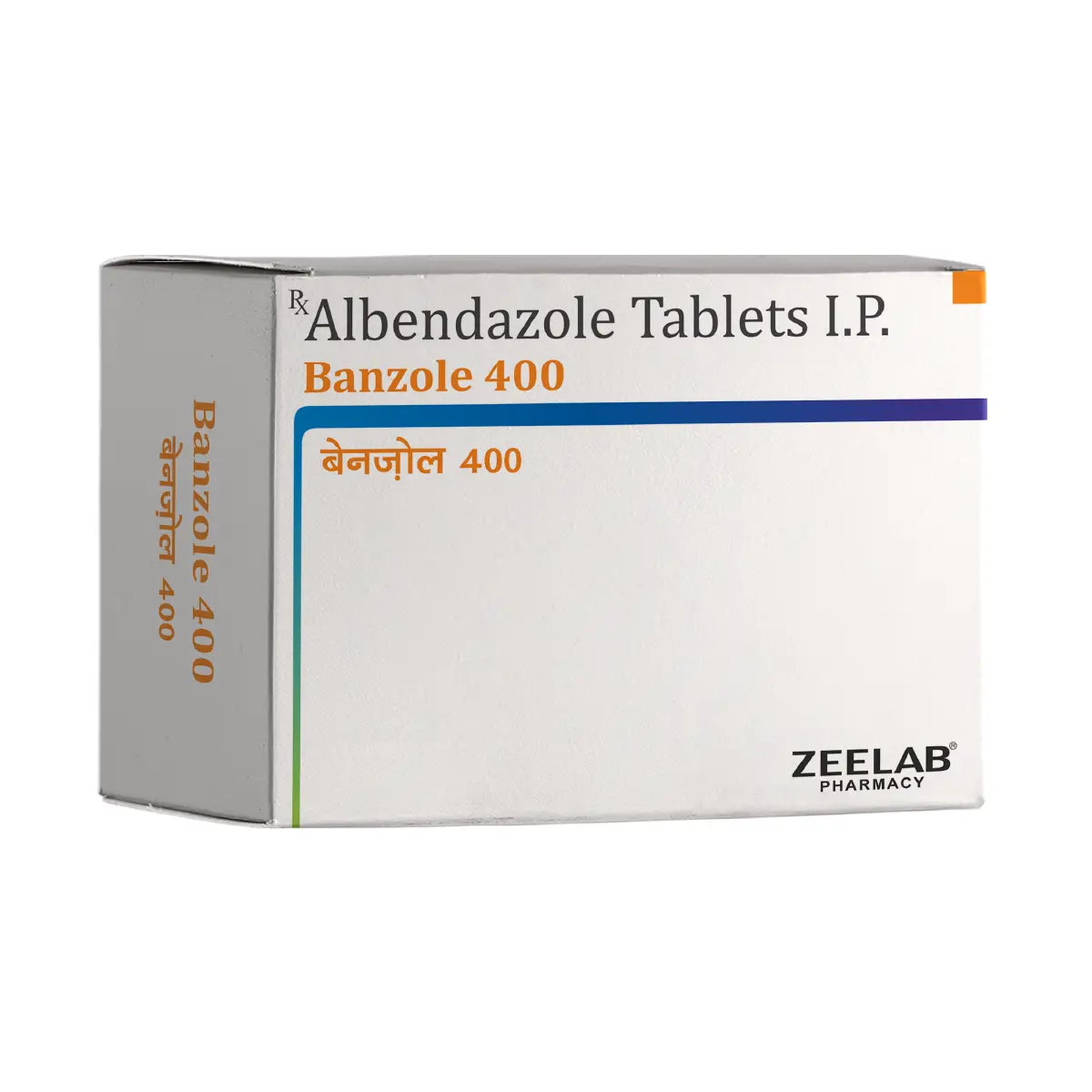

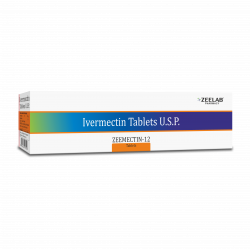
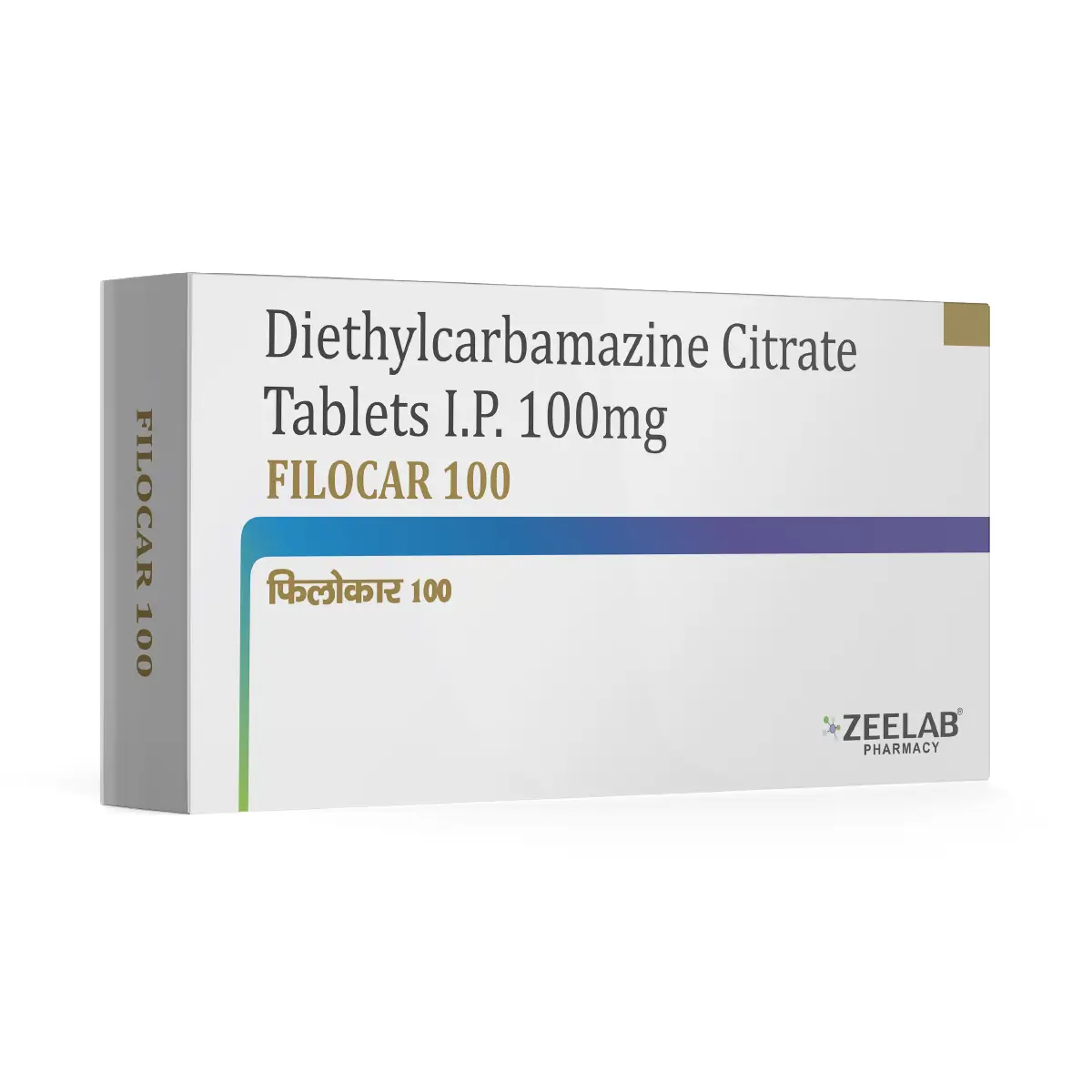
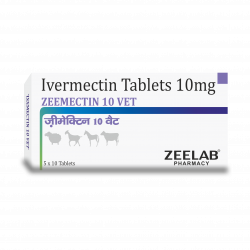





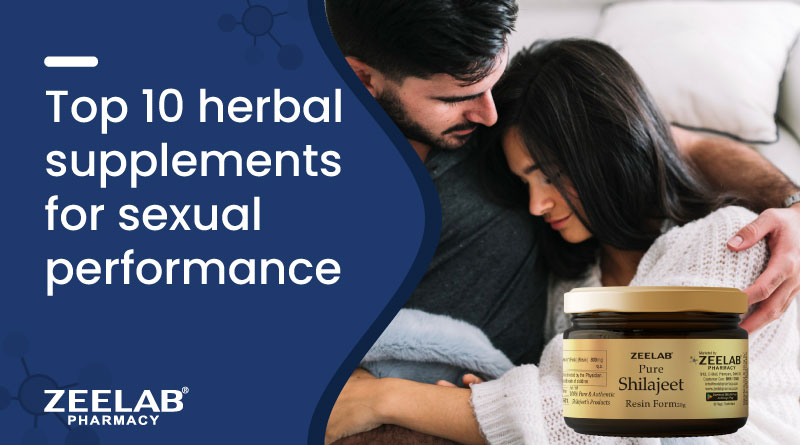









 Added!
Added!